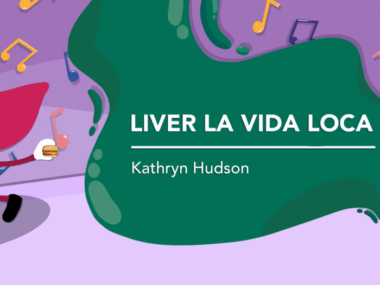Drug for fatty liver disease MASH may help prevent transplants
Rezdiffra is first approved therapy for the condition in the EU
Written by |

Regulators in the European Union (EU) have granted conditional approval to Rezdiffra (resmetirom) for some people with metabolic dysfunction-associated steatohepatitis (MASH), making it the first approved therapy for this severe form of fatty liver disease.
The decision by the European Commission (EC) will make the medication available to people with MASH and moderate to advanced liver scarring (fibrosis) that hasn’t yet become permanent. The conditional marketing authorization applies to all EU member states plus Iceland, Liechtenstein, and Norway.
“This approval of Rezdiffra marks a historic breakthrough for patients in Europe living with MASH, a serious and progressive liver disease,” Bill Sibold, CEO of Madrigal Pharmaceuticals, the therapy’s developer, said in a company press release. “MASH is the fastest-growing indication for liver transplantation in Europe, but until now, had no approved treatment.”
Madrigal plans country-by-country launches of Rezdiffra, beginning with Germany between October and December. The approval follows a positive recommendation from a committee of the European Medicines Agency in June, which was based primarily on results of the Phase 3 MAESTRO-NASH clinical trial (NCT03900429).
Madrigal can now begin marketing the therapy based on this early clinical trial data, while it collects more comprehensive trial data. If additional data confirming its safety and efficacy is delivered, the medication may win full approval.
In the U.S., Rezdiffra, in combination with diet and exercise, was granted accelerated approval for the same indication last year, and is also contingent on additional data to achieve full approval.
Formerly called nonalcoholic steatohepatitis (NASH), MASH is a severe form of fatty liver disease where excessive liver fat leads to inflammation and fibrosis. If it’s not addressed, it can lead to cirrhosis, or permanent scarring, and life-threatening complications like liver failure.
Testing Rezdiffra
Rezdiffra is a daily oral medication that activates thyroid hormone receptor beta (THR-beta), a protein whose reduced activity has been linked with liver fibrosis in MASH. For this reason, the therapy should prevent the need for a liver transplant by reducing scarring before damage becomes irreversible.
“The European labeling for Rezdiffra will set an important precedent for the entire field, with no biopsy required to qualify for treatment with Rezdiffra and a clear focus on a distinct MASH patient population with high unmet need: those with moderate to advanced fibrosis,” Sibold said. “These patients require liver-directed treatment because they have a 10 to 17 times higher risk of liver-related mortality and are just one or two steps away from progressing to cirrhosis.”
More than 1,700 adults with biopsy-confirmed MASH and moderate to advanced liver fibrosis are taking part in MAESTRO-NASH, taking daily doses of Rezdiffra (either 80 or 100 mg) or a placebo. The two main goals are to assess the proportion of participants with less fibrosis, but no increased disease activity, and the proportion with lower disease activity without fibrosis worsening after a year. The investigators are evaluating disease activity using the nonalcoholic fatty liver disease (NAFLD) activity score (NAS), where lower NAS indicates less activity.
An interim data analysis of 966 participants who completed a year of treatment showed significantly more people in the Rezdiffra groups achieved these outcomes relative to those on placebo. About a quarter of both Rezdiffra groups saw fibrosis lessening without increases in NAS over 14.2% in the placebo group.
Similarly, 25.9% of the 80 mg Rezdiffra group and 29.9% of the 100 mg group had at least a 2-point decrease in NAS without fibrosis worsening. This was significantly more than the 9.7% of those on the placebo who reached this goal.
Rezdiffra also reduced markers of fibrosis, stiffness, and fat content in the liver compared with the placebo.
Temporary diarrhea and nausea were more common in the Rezdiffra groups at the start of treatment. These dropped off over time, however. Rates of serious adverse events were similar across the Rezdiffra and placebo groups.
Approval hailed as ‘transformational moment’
Because Rezdiffra trials have included many European participants, clinicians in EU countries have experience with the medication, which is already included in European MASH treatment guidelines, according to Frank Tacke, MD, PhD, chairman of hepatology and gastroenterology at the Charité-Universitätsmedizin in Berlin, Germany.
“The approval of Rezdiffra is a transformational moment for the European MASH community and I’m looking forward to offering this important new treatment option to my patients with moderate to advanced fibrosis,” Tacke said.
MAESTRO-NASH participants will undergo a liver biopsy after about four years. Should the results confirm Rezdiffra’s benefits at one year, Madrigal plans to use those findings to support a full approval.
The company is also sponsoring MAESTRO-NASH-OUTCOMES (NCT05500222), another Phase 3 trial that’s testing Rezdiffra in about 700 people with MASH and cirrhosis who still have adequate liver function. If it reduces the risk of death, liver transplant, and other serious clinical events in this population, the company intends to use the data to expand the label.


